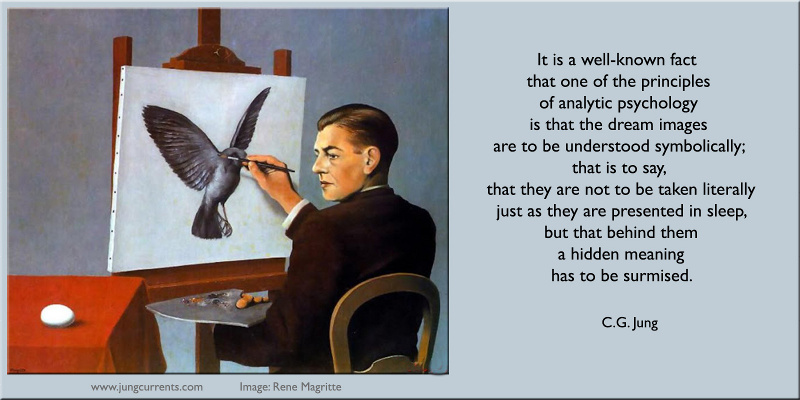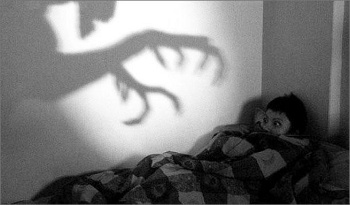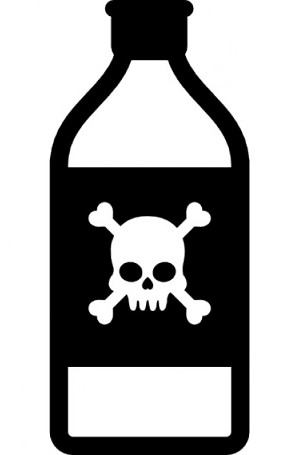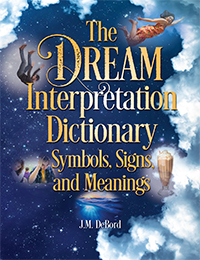A nightmare can be a big flashing sign that warns, “something’s wrong!” A situation has gone on too long. Stress levels are too high. Something about you or your life needs to change, pronto.
Think of a nightmare as shock therapy, an attempt to break a pattern or get your attention after gentler methods fail. Dreams usually try to get through to you in what you might call a normal speaking voice, and crank up the volume if you don’t get the message. It’s like shock therapy, a last resort.
Dreams tend to focus on unprocessed emotions. When you don’t work them through your system, your dreams take up the slack. If you want to lessen the odds of having nightmares, process your emotions consciously. Don’t give your nightmares fuel for the fire.
Fear is the number one emotion behind nightmares, and some fears are more obvious than others. For example, if you fear spiders and dream about them crawling all over you, it could be a way of amplifying or confronting the fear. And if you successfully confront a fear in a dream, you’re likely to reroute your brain’s neural pathways away from that fear, creating a lasting change. Or if you fear heights you might find yourself dreaming about being stuck on top of a skyscraper, and your choice is to overcome the fear or succumb to it.
Don’t worry. If you fail the first time you’ll be put back in the scenario again, and again, and again—as many times as necessary till you get it right.
Don’t take nightmare imagery literally

It’s very important to understand that the imagery in your nightmares is not to be taken literally. It’s symbolism. It’s telling a story. For example, incest, the ultimate taboo, is symbolism in a dream. If you take it literally you’ll end up judging yourself for it and completely miss the point. The dream is saying, for examplethat a relationship with a relative is too close for comfort, or you feel violated, or you have crossed a line. See? Symbolism.
Three varieties of nightmares

First on our list: Trauma. You can also call them “Shock to the system” nightmares stemming from sudden, dramatic and traumatic events. You find out your spouse is cheating. A layoff at work. You get in a terrible fight with a friend. Someone close to you dies and it provokes a nightmare.
Trauma nightmares tend to be meaningful but often there isn’t much that can be learned from them or changed as a result. These nightmares reflect the events that spark them—events that are probably beyond your control—and act as a release valve. Your best bet to avoid this sort of nightmare is to consciously process your thoughts and emotions after a shocking or traumatic event. If you have been through trauma, you will dream about it, and it will hurt. It might seem cruel to relive traumas in dreams, but if you believe what Carl Jung said, all dreams—nightmares included—are for your benefit. In a moment we’ll discuss why.
Second on our list: Abuse. Chronic stress. A bad relationship. Some sort of addiction or compulsion. A prolonged situation that’s harming you. Something untenable such as ignoring basic needs for sleep, rest, food. Self-abuse such as addiction. Abuse nightmares are most likely to be potentially beneficial, because they’re often brought on by something that can be changed or addressed. For example, you’re aware that a work or home situation is stressful, but it takes a nightmare for you to realize how much of a toll it’s taking. You can change the situation or take steps to alleviate stress. Or you know you have been ignoring the warning signs that your health is deteriorating, but it takes a nightmare about dying to spur you to action.
Third on our list: Illness. Fever dreams. Something I ate” nightmares caused by indigestion and certain medications. Spicy foods and heavy dairy products are known to produce nightmares, especially if eaten just before bed. Also, SSRI and other psychoactive drugs are known to cause them. Withdrawal from the drug Cymbalta even has the term “Cymbalta Nightmares” associated with it, noted for extreme gore and violence. Often, there isn’t a deeply personal message or meaning. The body reacts to something inside it and dreams translate it into scary imagery. Or in the case of withdrawal, the body reacts to something taken from it.

Nightmares help you by putting psychological distance between you and the event, trauma, or situation. Once the dream is finished it’s “in the past,” behind you. It creates a mental cushion.
Nightmares provide emotional release. Think of it as a safety valve for pressure. If you don’t dream about the trauma and let the emotions out, the pressure continues to build inside you.
Nightmares give you ways of viewing situations in your life as stories and working with the imagery to find resolution.
Dreams function at a neurological level to reroute neural pathways, called “neuroplasticity,” a process of reorganizing and rerouting the brain. For example, let’s say you were a soldier and are haunted by killing civilians. No matter how you justify it, it’s just wrong, and your conscience won’t let up. You can’t change what happened, but dreaming can give you some distance from it. It can give insights. It can help you reprocess the experiences in a way that heals the trauma.
Self-help through working with nightmares

You can work with the imagery consciously as a sort of therapy. It’s amazing what apologizing to a dream character and resolving to learn from your mistakes can do. And you don’t have to be dreaming to do it. A heartfelt daydream can do the trick, or try dream rescripting and active imagination technique.
In some nightmares, what makes them so frightening is obvious—the serial killer pursuing you; the tidal wave enveloping you; the evil presence haunting you—but sometimes your reactions stand out as overreactions. When you react powerfully to imagery in a dream it’s because you subconsciously know what it symbolizes.
For example, you dream about going into the basement of an abandoned home and seeing a young child. It floats in the air and its head spins around like in the movie The Exorcist. For some people, such imagery might be disconcerting or frightening but not terrifying. They wouldn’t necessarily describe it as nightmarish because what it represents to them is not at that level. They might even think it’s funny.
But for other people, such a scene might induce panic and cause them to wake up screaming. Why? Because they recognize something about themselves in that child, such as repressed memories from childhood causing current emotional issues. To them the child symbolizes something they have been avoiding at all costs, while to someone who reacts more mildly the child might symbolize that they acted childishly the previous day—not exactly nightmare material.
Which brings up a point that everything in a nightmare is projection of something about you and your life, except on rare occasion when it reflects a nightmarish experience you have lived through. Dreams about rape are of that type.
Nightmares are easy to confuse with sleep paralysis. Use the link to check out that subject.
Physical Causes of Nightmares
Chronic nightmares can be caused airflow obstruction while sleeping, such as from snoring or sleep apnea (that link is to a helpful post I wrote). It causes your body to send panic signals to the brain—help, I need to breathe!—which the brain then translates to scary, even life-threatening imagery and scenarios.
Oftentimes, the dreams have themes and imagery related to lack of air, or to ventilation, such as the recurrent dreams a man with sleep apnea has about being stuck upside down in a chimney. The chimney represents his airway. Being stuck in the chimney symbolizes an obstruction in it.
Ask your sleeping partner to monitor you as you sleep, or use a voice-activated recorder if you want to find out if breathing difficulties are causing your nightmares.
And finally, chronic nightmares can be caused by REM deprivation. You aren’t getting the deep sleep you need, and over an extended period it can cause you to break down mentally and physically. It’s a serious problem in this age of 24-hour schedules, night work and constant distraction caused by electronics, especially phones. Search online for the symptoms of REM deprivation, which include drastic mood swings and inability to focus.
Resources for getting help with nightmares
If you are having chronic nightmares, get help. Studies show that interventions and treatment for nightmares are more effective the earlier they begin. Nightmares are a warning. What happens when you don’t heed a warning?
My friend Linda Schiller is a therapist who specializes in treating nightmares. Use the link.
Michelle Carr is another specialist in treating nightmares. The link is to a fantastic article she wrote.
My colleague Kezia Vida says that nightmares can be a precious gift.
Helping children with nightmares.
